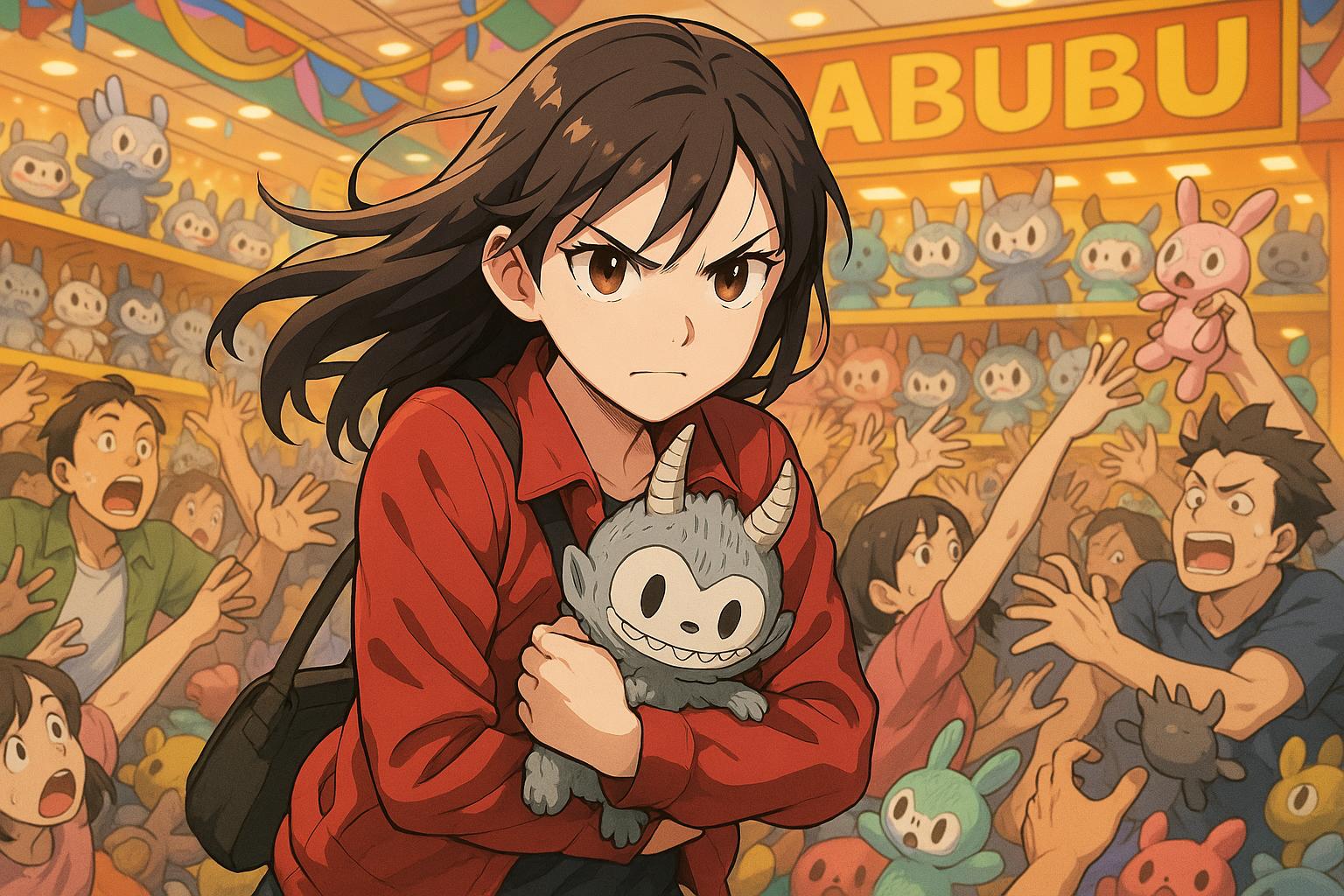A passionate collector of Labubu dolls has branded the re-sale market a “battlefield” following the suspension of sales by their manufacturer, Pop Mart. This dramatic decision, affecting all 16 of the brand's UK stores until June, stems from safety concerns that have arisen amid a frenzy of consumer interest. Reports of physical altercations over the plush toys and extreme measures like overnight queues outside shops prompted the company to temporarily halt sales. According to Pop Mart, this move aims to protect both customers and store teams from the chaos that has defined recent sales events.
The surge in popularity of Labubu dolls can be traced back to 2024 when K-Pop sensation Lisa from the group Blackpink posted a photo of herself with one, sparking a cultural phenomenon. The allure of these uniquely designed plushies is partly due to Pop Mart's strategy of packaging them in blind boxes; consumers are not privy to which character lies within until they open it. This element of surprise has heightened the demand, leading to intense competition in both physical and online markets.
Ashley Bushey, a 32-year-old coffee shop supervisor from Northamptonshire, has dedicated significant time—often sneaking away during work hours—to secure new additions to her collection. Having invested over £1,000 in 13 Labubu dolls, she describes her pursuit as “a battlefield”, intensified by the temporary halt in UK sales. Miss Bushey spends hours navigating re-sale platforms such as TikTok Shop, Vinted, and various Facebook groups. “I’m not even a big collector in the scheme of things,” she remarked, acknowledging that many in these communities take their enthusiasm to extreme levels.
The dolls' charm, part of The Monsters series designed by Hong Kong artist Kasing Lung, lies in their quirky aesthetic—so “ugly that they’re cute,” as she puts it. However, amidst the fervour, there are challenges. Limited edition figures, particularly male ones, have become notoriously scarce and sought after, with some listings on re-sale sites reaching up to £600. Regular Labubu dolls typically retail at £17.50, yet many have become targets for opportunistic resellers who inflate prices by as much as 70%.
Furthermore, an issue of authenticity complicates this increasingly competitive market, with counterfeits dubbed “Lafufus” flooding the scene. Genuine Labubus can be authenticated via a QR code on their packaging, yet savvy resellers have been known to swap authentic dolls for fakes inside the boxes. This deceit undermines consumer confidence as buyers face the risk of being duped. The distinguishing features between original and counterfeit dolls underscore the growing sophistication of the fraudulent market.
As sales continue to be suspended, Pop Mart has announced its plans to reassess distribution methods in a bid to create a safer shopping environment. The company acknowledged the excitement surrounding Labubu but stressed the need for a “fair and comfortable shopping experience” for everyone involved.
Across the globe, the Labubu craze is fostering not just collection but also speculation. In other regions, such as Thailand, the resale prices have started to decline due to an oversaturation of the market as production ramps up. This saturation contrasts sharply with the sharp rise in prices seen initially, as enthusiasm for the dolls led many to invest in what they assumed would be a lucrative venture.
However, the allure of Labubu dolls extends beyond the simple act of collecting; it delves into the complexities of consumer culture and the potential hazards intertwined with it. In countries like Singapore, where chance-based online games for obtaining rare figures emerged, concerns about legality under gambling laws have begun to surface. Such developments raise questions about not only the impact on collectors but also the broader implications of normalising gambling behaviour among younger demographics.
The Labubu phenomenon serves as a poignant reminder of the transient nature of toy crazes, illustrating the delicate balance between genuine passion for collectibles and the pitfalls of a burgeoning re-sale market. As both Pop Mart and collectors navigate these turbulent waters, only time will tell how the market will adapt and evolve.
Source: Noah Wire Services
